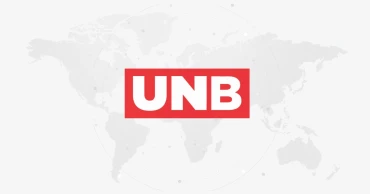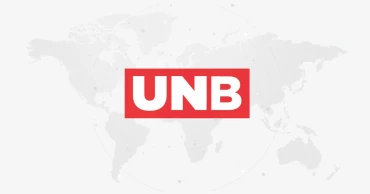2022-23 fiscal
Bangladesh govt aims to increase money supply over next two fiscals
The government of Bangladesh has fixed a target to increase the money supply to 16.5 percent from the existing 15.6 percent in the next two fiscals.
As per a government document, in the 2022-23 fiscal the rate of money supply is at 15.6 percent.
For the next 2023-24 fiscal the government has projected to increase the rate to 16 percent and for the 2024-25 fiscal it will be 16.5 percent.
Academically, the enhancement of money supply might increase inflation. This kind of target of ‘broad money’ growth would further invite inflation in the country.
Also read: Deposits at IBBL 'completely safe': Bangladesh Bank
"Broad money" – or M2 – is a calculation of the money supply that includes all components of "narrow money", such as cash and checking deposits, and also "near money" such as savings deposits, money market securities, and other time-related deposits.
M2 is a broader measure of money supply and is being closely watched as an indicator of money supply and future inflation, and as a target of central bank monetary policy.
If broad money exceeds nominal GDP growth, academically, commodity prices will take another steep jump, leaving limited-income consumers and the poor to bear the brunt of the increasing squeeze on the cost of living.
In 2020-21 fiscal year the money supply was 13.6 percent.
ReadMore: Bangladesh seeks zero tariff on apparel exports to US at 6th TICFA meeting
In the 2021-22 fiscal the proposed money supply rate was 13.8 percent, but the revised rate was 15 percent.
It was increased because of the government stimulus packages to inject money in various sectors to run their activities for offsetting the impact of COVID-19 pandemic that stalled the economic activities of the whole world, as well as in Bangladesh.
Apart from the impact of COVID-19 pandemic, the Russia-Ukraine war, and sanctions and counter-sanctions caused another deadly impact on the world economy as world trade was seriously damaged due to this.
The prices of essential commodities, fuel oil and transportation costs increased heavily. Russia and Ukraine were one of the main sources of Bangladesh for various essential items, like wheat.
Read More: Nagad is a Digital Bangladesh success story: Mustafa Jabbar
As a result, the people of the country have to spend more money in purchasing their day to day essential items.
To lessen the burden of fixed income group, low income group and lower middle income group people, the government has taken various types of steps.
These include selling rice among 50 lakh families at the rate of Tk 15 per kg and providing special family cards to one crore people by which they will be able to procure essential commodities at fair price.
3 years ago
Govt focuses on food security in new action plan amid global crisis
The government has worked out an action plan for 2022-23 fiscal for the agricultural sector to ensure food security as the world faces pressure in food production due to COVID-19 pandemic and Russia-Ukraine war.The plan has been worked out in line with the National Agriculture Policy 2018, Agricultural Extension Policy 2020 and 8th Five Year Plan, according to an official document.The main aspects of this action plan are to ensure country’s food security through increased production of all types of crops including paddy and maize; innovate adverse environment-tolerant crop variety and technology and to roll it out quickly, and develop and enhance the quality of their seeds using biotechnology, said the document obtained by UNB this week.
Also read: Flood waters receding again in Sylhet but food, water crises persistThe document highlighted optimum use of surface water and solar- powered irrigation, promotion of the production and application of organic fertilizers to safeguard soil health and issueing smart cards to all farmers in the action plan.
3 years ago
Govt braces for increased interest payment on local and external borrowings: official document
The government’s payment on interest for loans will increase in the coming days despite reducing the rate of interest on borrowings, according to an official document.
The government has to pay some Tk 775.5 billion for interest payment in the coming 2022-23 fiscal which is 11.8 per cent of the total budget, says the document obtained by UNB.
The overall interest rate will be 5.1 per cent for the next fiscal, down from 5.3 per cent in the running FY2021-22.
The document says that some Tk 698 billion will be given as interest for the loans taken from the domestic sources while Tk 77.6 per cent for the external sources.
The amount of interest payment has been projected at Tk 881.6 billion for the FY2023-24, which is 11.8 per cent of the total budget with 5 per cent interest rate.
Also read: Govt aims to reduce budget deficit to 5.7% in upcoming financial year, says official document
The document mentions that some Tk 794.3 billion will be paid as interest for the loans taken from the domestic sources while Tk 87.3 per cent for the external sources.
For the running FY2021-22 the government has earmarked Tk 685.9 crore as interest payment, which is 11.4 per cent of the total budget and the overall interest rate is 5.3 per cent.
3 years ago




